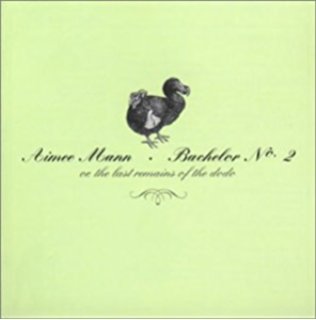
About 20 years ago, my best friend and I had a freeform college radio show that was on from 2-4 AM. If you were within forty miles of campus and you were somehow wired on cocaine, lonely and desperate you could listen to us. Despite the fact that we very likely had about seven listeners, we took our jobs seriously. “In a better world, this would be number one”, we uttered as we spun the db’s, the Replacements, the Smithereens, or Let’s Active. Mostly, it seemed like in a better world meant the mid ‘60s, where the only thing that mattered was the ability to put out perfectly constructed pieces of three minute magic. It wasn’t that I was saying that I had better musical taste than everybody else (even though it seems like just about everyone secretly believes it to be true), I just found it sad that there were talented guys out there like Peter Holsapple, seemingly wondering if they were going to be able to pay their rent next month.
I was just looking at Jim Boggia’s web site and you could see the frustration. You could imagine him talking to record company after record company and doing his best to hold onto the belief that there was no greater joy than a perfect pop song as the doors were being slammed in his face. “Hey, I can sing. I can play ten instruments. I write great songs. Isn’t that what it’s supposed to be all about?”
Music business sort of seems like an oxymoron at times. It’s definitely a business, but people are too often duped into thinking that it has anything to do with music. Art’s a tough nut to crack. The second you master painting really beautiful landscapes, Jackson Pollack starts splattering paint around seemingly at random and you have to move back in with your parents. I’ll surrender my ‘50s Elvis singles right after my last warm breath, but hey, even I know that it was much more about the look, those hips, and the sideshow than it ever really was about that killer voice and sound. The Beatles sort of spoiled everyone into thinking that great songs meant fame, success, and money, but art isn’t like baseball. Sometimes you hit a grand slam and not many people care.
Is it fair that Jordan Knight probably has made a hundred times as much money in the music business as Paul Westerberg? Probably not, but then again Paul doesn’t have to cringe every time he surfs by VH1 Classic.
Here’s how ugly it is these days for those who profess their love of Big Star and the Raspberries. Fountains of Wayne deliver two pop masterpieces and can barely get arrested. Jon Brion and Aimee Mann turn in records you’d swear would have been huge in 1965, and their labels spit on them like they had submitted something akin to free jazz. Rick Nielson, the author of “I Want You to Want Me” for God’s sake, is stuck collaborating with MTV I want to be a VJ winner Jesse Camp!
Sometimes something perfect like Tal Bachman’s “She’s so high” or Michael Penn’s “No Myth” slips through the cracks and finds some success, but it’s not like anyone is hungering for the follow up. When is that video with all the good looking teenagers having a party in their underwear on? It’s all about younger and younger girls wearing less and less clothing, but here’s the secret – it always has been.
It doesn’t matter how much Bob Dylan dug “I Want to Hold Your Hand”, if you went to a Beatles concert in 1965 you saw a mob of young girls screaming louder than the music, while John Lennon rolled his eyes, made faces and pretended that his guitar was in tune.
Even sadder is the fact that if you look at it more closely none of those ‘60s heroes ever seemed so smitten with the pop song themselves. John Lennon, Paul McCartney, Brian Wilson, Pete Townshend, Ray Davies. Did they continue to write perfect pastiches of melody? Not even close. Every single one kept moving forward and pushing the envelope of what popular music was, would, or could be. Did Pete Townshend care that I’d prefer that he wrote forty songs as good as “Substitute” instead of puzzling his way for months through the confusing plot arcs of his latest “pop opera?” Listen to George Martin these days and try to remind him that “A Day in the Life” isn’t 1,000 times better than “She Loves You” just because it took that much longer to record. Suddenly, you’ve become Wynton Marsalis cursing Miles Davis for selling out and I never want to be like that.
The truth is that the Beatles tricked everybody by making so much money that people started to believe that money and art were related to each other because last time I checked Van Gough never strolled around in a Mercedes. In the end, the best that you can do these days is not pirate the next Matthew Sweet album so he has enough dough to make another one and hope to God the next Marvin Gaye doesn’t have to shake his ass and have perfect abs to pay his phone bill.






